Youth and inclusion of people with disabilities, the In Touch partnership in Albania
Note that you can download a PDF version of the text above in English.
Reborn from the ashes of the devastation caused by Albania’s January 2020 earthquake, the municipal centre ‘Te Qendrojme Se Bashku’ in Tirana can be considered not only an example of resilience but also one of the flagships for the inclusion of young people with disabilities and other vulnerable groups across the country. A facility, as emerged during the study visit to Albania of the In Touch project, supported by the European Erasmus+ programme, within which numerous therapy paths are provided for young Albanians with intellectual disabilities and victims of domestic violence.
Among the main innovations available within the centre is a design workshop where young people, supported by a team of experts, have the opportunity to test their creativity by producing decorative objects for the local market: “Here our boys and girls learn not only decorative techniques but also transversal skills useful for their personal and professional lives,” explains therapist Persida Zhapaj. Their creations, again, are often featured in events and exhibitions promoted by our local institution’.
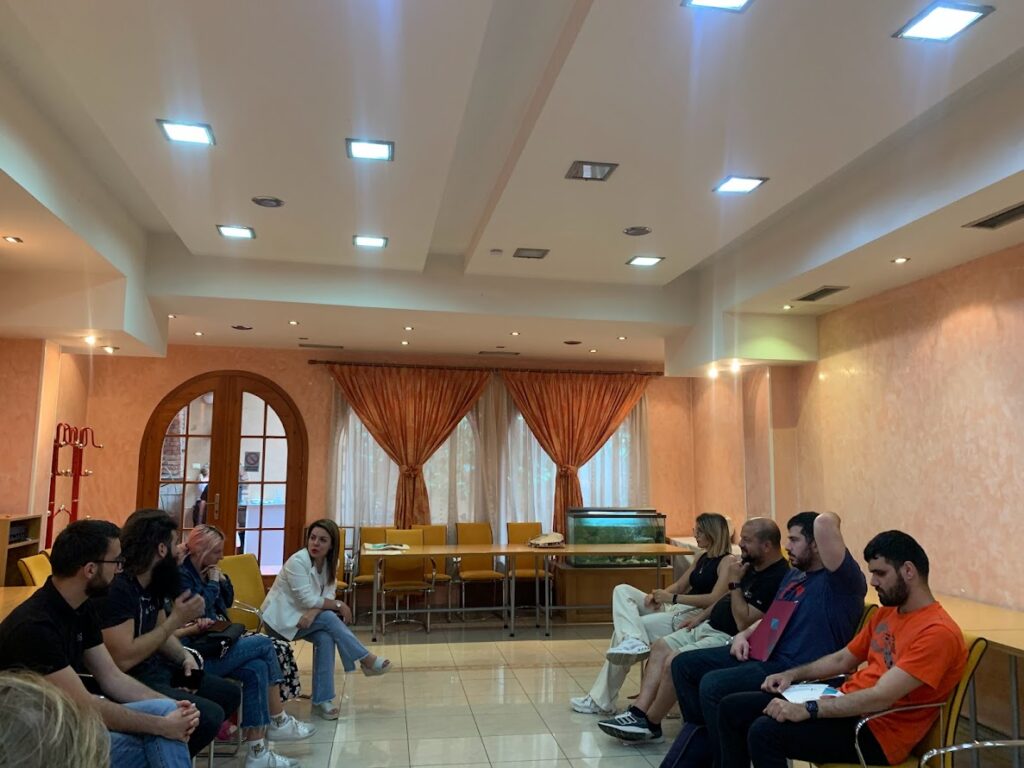
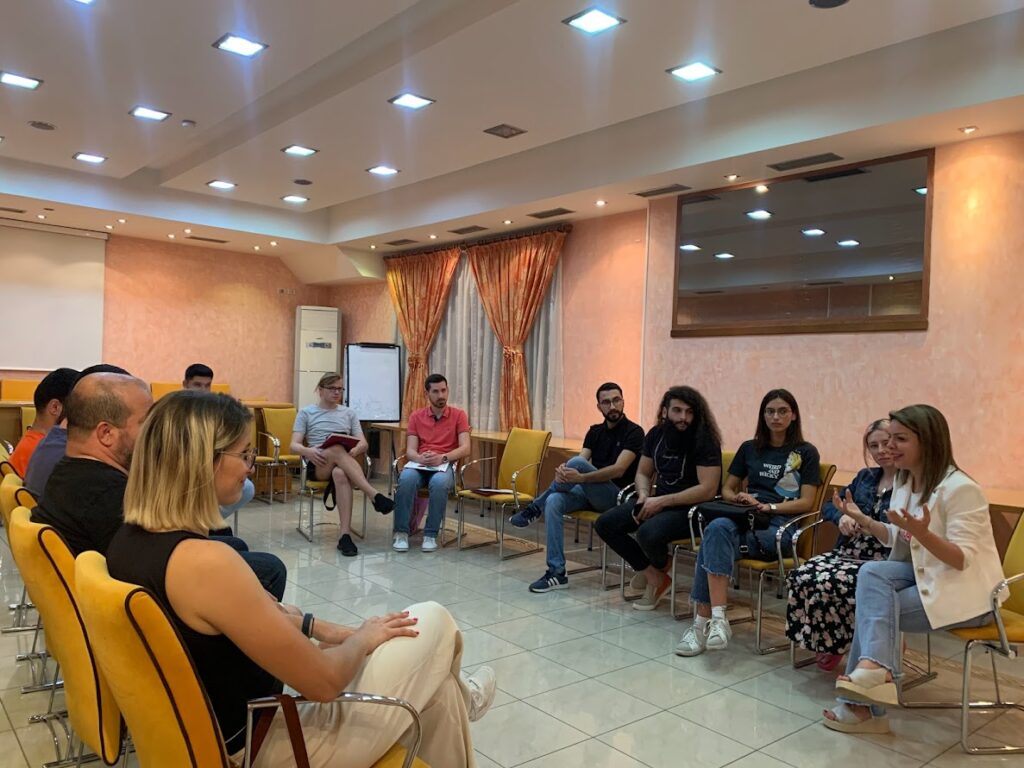
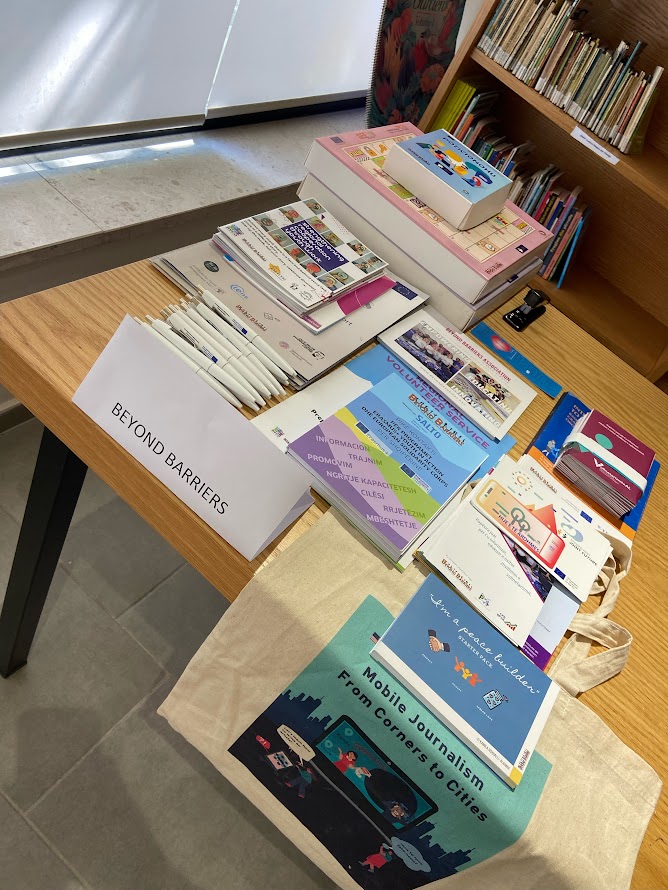
A packed programme to discover best practices for the inclusion of young disabled people continued with a meeting at the local YAPS Foundation, an interesting case of successful social enterprise in the country, as director Arben Shamija recalled: ‘Over the years, our social enterprise has supported the placement of hundreds of young disabled people and members of the Roma minority. Mainly our employees are engaged in shipping and cleaning, and our clients include Coca-Cola and all the embassies in the capital Tirana. The income for YAPS’ activities,’ she continues, ‘is not distributed among the members but used for charitable actions for the country’s main vulnerable groups, for the salaries of young people in employment and to ensure the sustainability of our foundation’s guarantee fund’.
“If we have been in the market for so many years,” the YAPS director added, “it is not only because we support the inclusion of young people with disabilities but, above all because we guarantee quality services. Our young people before being vulnerable young people are workers with rights and duties. An aspect, this one, of no small importance, capable of explaining, in short, the secret of the economic sustainability of the initiatives undertaken by our Foundation. Values that, in cooperation with the Catholic University of Tirana, we are bringing to the attention of economics students to make them understand the potential and specificity of social business.
He concludes: “Over time, we have managed to counter some stigmatising narratives towards, for example, young Roma people in the capital, and today our employees are much sought-after workers for cleaning the cruise ships arriving in the Port of Durres”.
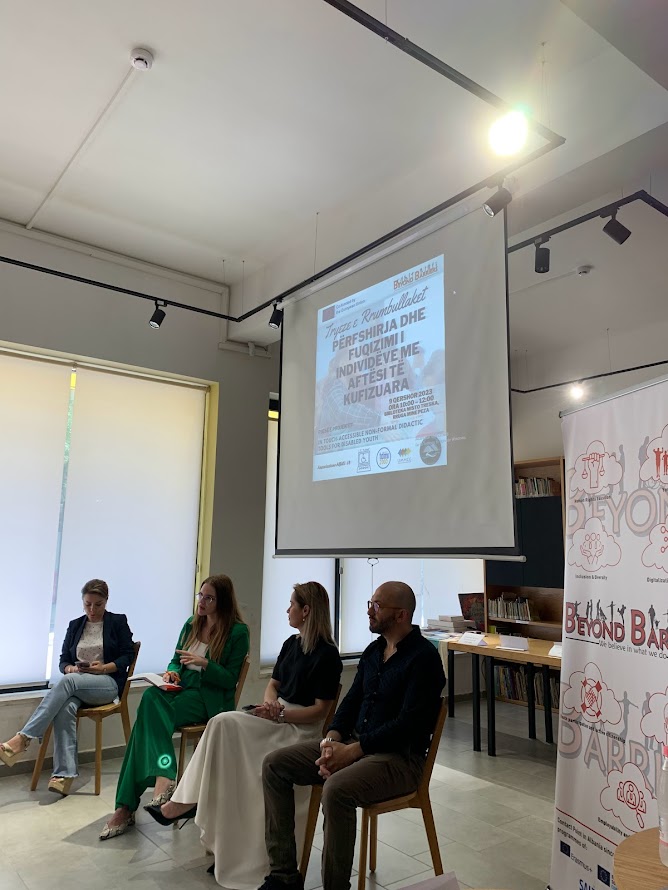
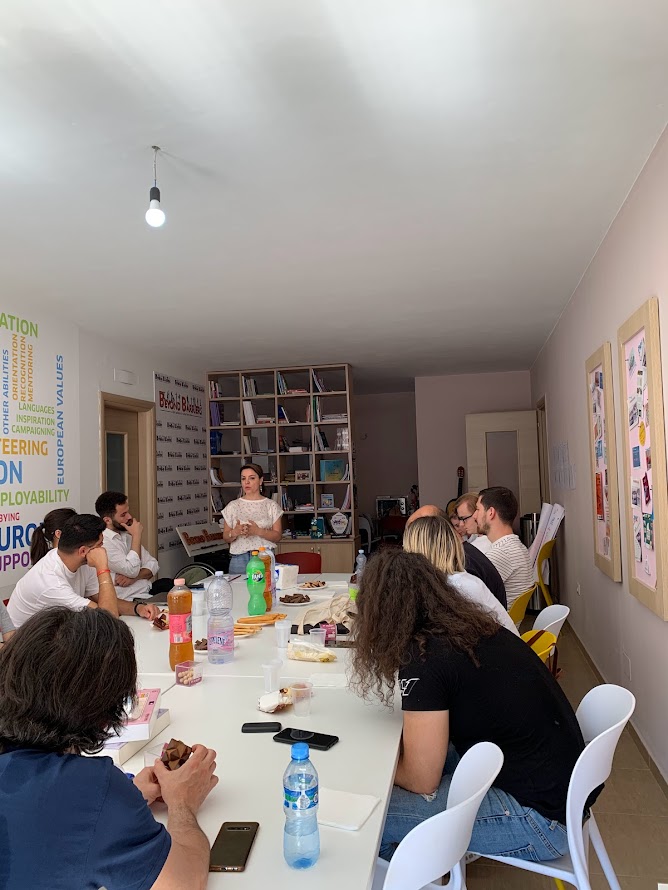
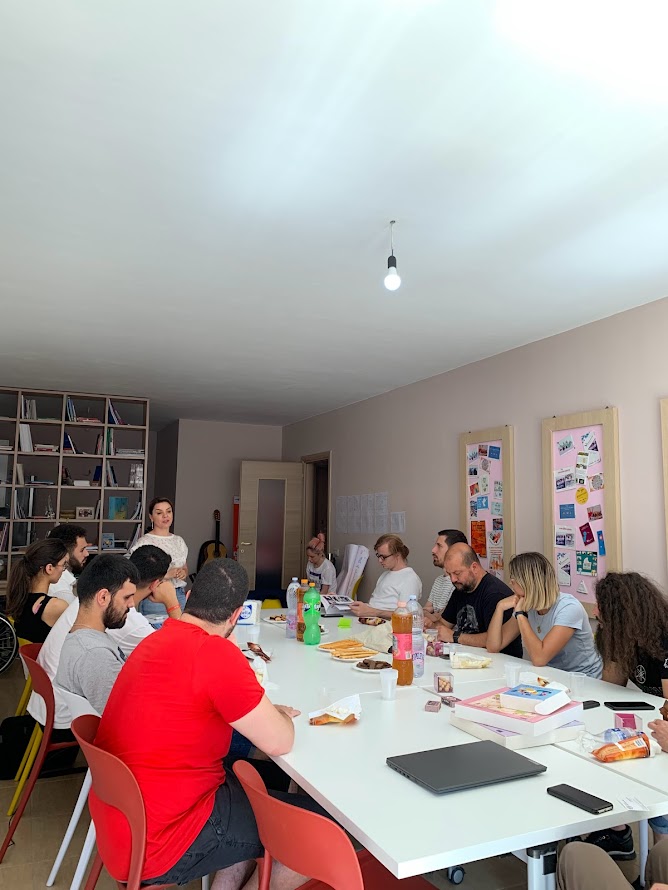
Innovative solutions, as well as those with a high humanistic value, were also discussed during the meeting of the representatives of the In Touch partnership with the head of the Albanian National Board of the Deaf. Meeting during which it was also possible to gather feedback from the Albanian deaf community on the accessible menus for public establishments conceived and produced by the coordinating organisation ABICI: “We are thrilled to have received very positive feedback from the deaf,” said ABICI president Gabriele Frongia on the occasion. “Our menus aim to make the eating experience in public establishments for the deaf more inclusive and at the same time to improve the quality of service offered by catering operators to the sensory disabled.
A country, Albania, where inclusiveness and synergy between institutions and youth organisations are in high gear, producing significant innovations and cooperation to devise and implement solutions for common problems in the youth field.
Modus operandi was emphasised during the meeting with members of the In Touch consortium and leaders of the Albanian National Youth Agency and the Albanian capital’s Social Affairs and Youth Service.
A country still on the path to EU membership, where the desire to build and create synergies is palpable, as recalled during the meeting with the local tetraplegic organisation at the office of Behind Barriers in Tirana, a member of the In Touch partnership, and during the visit to the greenhouse built in the school for differently abled children “Luigj Gurakuqi”.
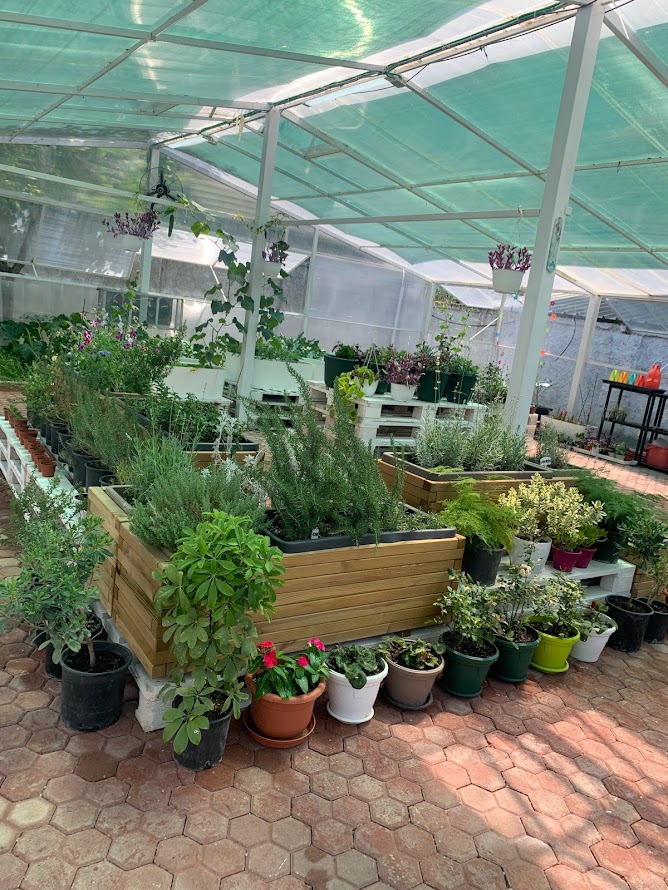
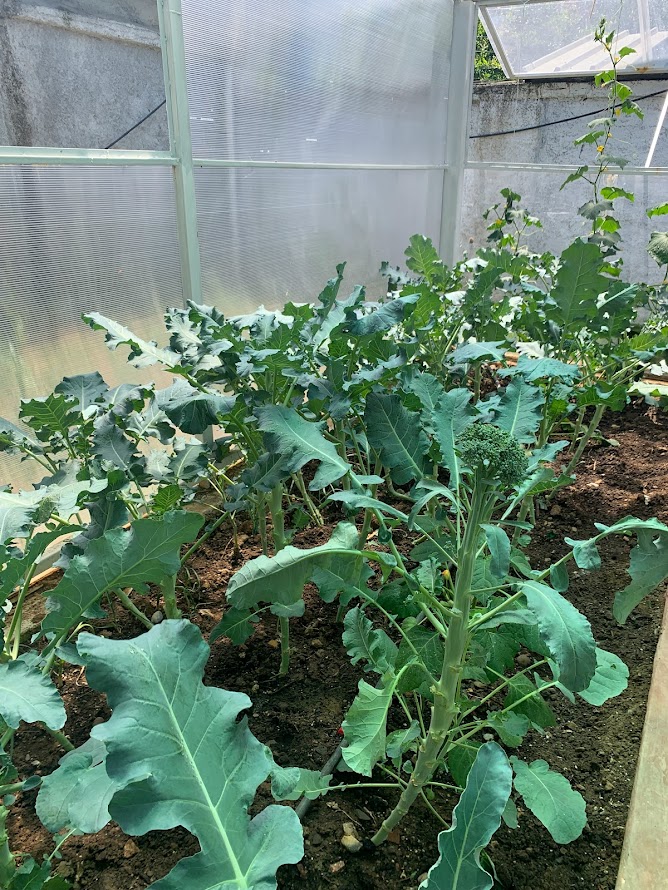
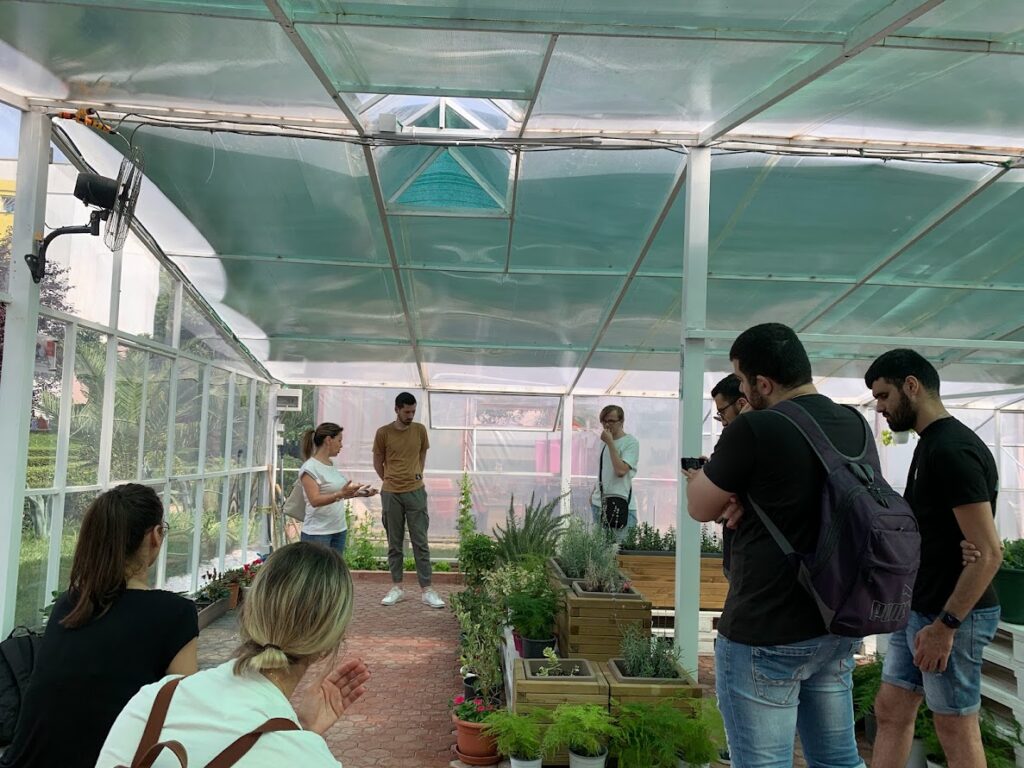
“A greenhouse made possible thanks to the collaboration created with the Smile platform,” recalled Ana Dervishi of Behind Barriers, “and which over the past year has enabled 127 differently abled children aged 6 to 18 to learn how to grow flowers, vegetables and fruit. An educational space,’ he continues, ‘in which school-age children acquire skills not only in horticulture and gardening but, above all, social skills, combating isolation in their own homes and improving family interaction’.
Inauguration of the greenhouse, as if to underline the institutions’ sensitivity to initiatives for the inclusion of young people with disabilities, which last year saw the presence of the Minister of Education, Evis Kushi.
